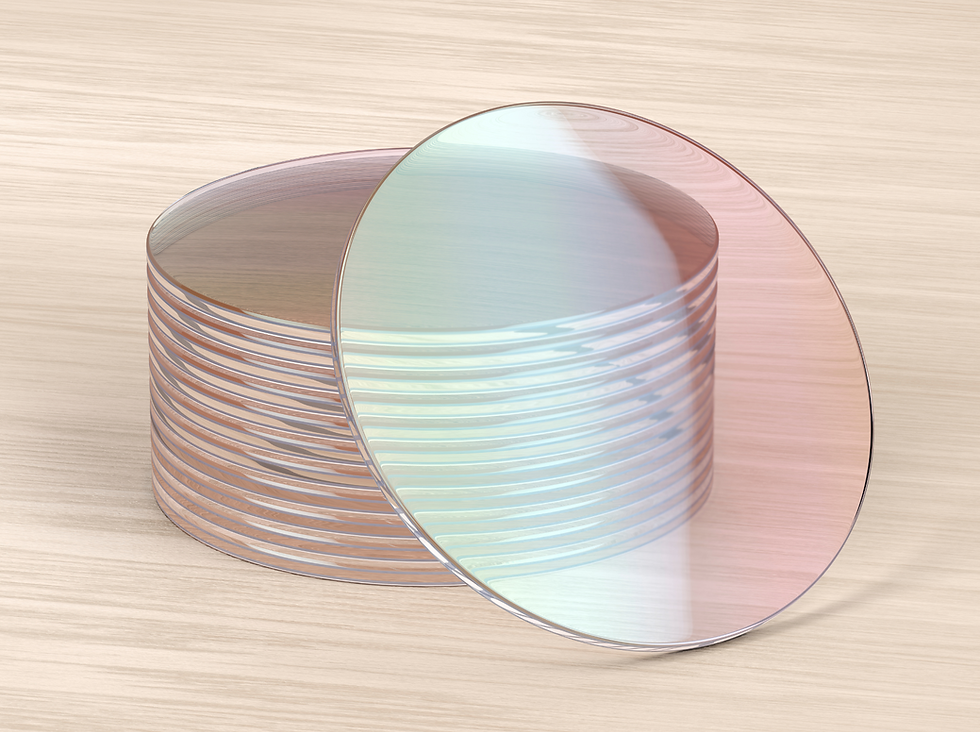Eye Health Supplements: Do They Work?
- Maria Bogoeva

- Aug 20, 2023
- 3 min read
At Ophthalmology24, we strive to keep our readers up-to-date with ophthalmology and eye care. Today, we want to shed some light on a topic, gaining popularity in recent years: eye health supplements. These types of eye supplements claim to support and enhance visual health. But we understand you may question their effectiveness and wonder whether they truly deliver on their promises.
Table of Content
2.4. Nutritional Support
4. Conclusion
Insightful Vision: Understanding Eye Health Supplements
First and foremost, let's acknowledge maintaining good eye health is crucial for overall well-being. Our eyes, as sensitive and fragile organs, undergo constant stress from various environmental factors. Modern lifestyles, excessive screen time, and exposure to eye-straining blue light often tire or dry our eyes.
While a healthy diet, regular exercise, and adequate rest play a significant role in supporting eye health, some individuals seek additional measures to protect and improve their vision. Here is where the notion of eye supplements comes into the picture.
Eye health supplements' formulas are usually a blend of vitamins, minerals, antioxidants, and other beneficial compounds. These ingredients are beneficial to the eyes and promote visual health.
Common eye-friendly antioxidants and ingredients are:
Vitamin C
Vitamin E
Zinc
Lutein
Zeaxanthin
Omega-3 fatty acids
After extensive studies, these elements have potential benefits in supporting eye function and somewhat protecting against degenerative eye conditions.
Every eye supplement contains different ingredients. Please refer to the label for more information.

Do Eye Supplements Really Work?
Now, the crucial question arises: Do eye health supplements actually work? The answer, like many things in the realm of health, is not a simple yes or no. Their effectiveness can vary depending on several factors:
Current eye health status
Lifestyle habits
Supplement formulation
Overall, supplements work well enough to keep your eyes healthy. But remember, they are NOT a quick fix to existing eye problems.
Age-Related Eye Conditions
According to scientific studies, certain eye supplements, containing lutein and zeaxanthin, can potentially lower the risk of age-related macular degeneration (AMD) and cataracts. As powerful antioxidants, these nutrients neutralize harmful free radicals, which contribute to eye damage from aging.
Visual Performance and Eye Fatigue
Supplements containing omega-3 fatty acids may enhance visual performance and reduce eye fatigue. These supplements may be beneficial for individuals who spend long hours in front of screens or have a high visual demand in their daily activities.
Individual Variability
Once again, individual responses to eye health supplements can vary. While some people may experience noticeable benefits, others may not see any significant changes in their visual performance. As with any dietary supplement, genetic factors, lifestyle choices, and overall health influence the final results.
It is also imperative to have realistic expectations of eye supplements and their effects on the eyes. You shouldn't think of them as some magic pills or powders which can heal the eyes, cure eye diseases or make your vision 20/20. Instead, remember this:
Supplements will NOT improve your eyesight, will NOT help you remove your glasses and will NOT alter your existing refractive power of the eye (diopters).
Nutritional Support
For individuals with dietary restrictions or those unable to obtain sufficient eye-healthy nutrients from their regular diet, supplements provide valuable nutritional support. However, eye supplements are NOT a substitute for a healthy diet.
A Holistic Approach to Eye Health
While eye health supplements complement a healthy lifestyle, they should not replace a balanced diet or proper eye care practices. Regular eye check-ups, wearing protective eyewear, getting good rest, and staying active are crucial habits to preserve eyesight.
Before starting any eye supplement regimen, we strongly advise you to consult with your eye doctor.
An eye examination is key to assessing your specific visual needs and determining whether supplements could be beneficial for you. Moreover, your eye doctor has the knowledge to recommend specific brands or formulations with proven efficacy and safety.
Conclusion
Eye health supplements can be a valuable addition to any eye care routine. Even more so when you use them in conjunction with healthy habits. They may offer support in safeguarding your vision.
However, no dietary product can replace the significance of a well-rounded approach to eye health. Such an approach includes regular check-ups, healthy lifestyle choices, and responsible use of technology.
The Ophthalmology24 team is eager to help our readers achieve optimal eye health and exceptional vision. If you have any questions or concerns about eye health supplements or any other aspect of your visual well-being, do not hesitate to reach out in the comments.
Checked by Atanas Bogoev, MD.



